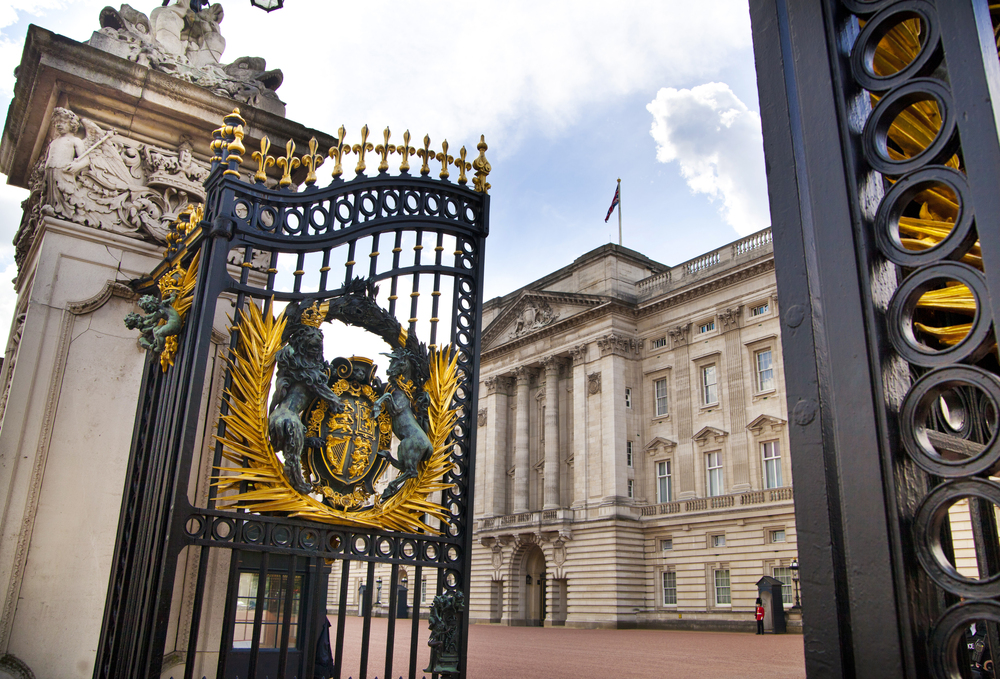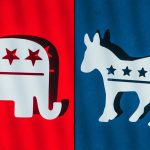The United Kingdom is both a democracy and a monarchy, but not in equal measure. It functions as a parliamentary democracy where elected representatives hold real political power, while the monarchy remains largely ceremonial. This dual identity often raises questions about how much influence the Crown truly has compared to Parliament.
The King serves as head of state, yet the Prime Minister and Parliament direct the government. Elections decide who holds authority in the House of Commons, and through this process, citizens shape the policies and leadership of the country. The monarch’s role, by contrast, is bound by convention and tradition rather than active decision-making.
Understanding this balance between democratic institutions and the monarchy requires looking at both present structures and historical change. The evolution from absolute monarchy to constitutional monarchy shows how power shifted over centuries, leaving the UK with a system that blends heritage with representative government.
Is the UK a Democracy or a Monarchy?
The United Kingdom combines democratic institutions with a hereditary monarchy. Political authority rests with elected representatives, while the monarch serves as a ceremonial head of state with limited constitutional functions.
Defining Democracy and Monarchy in the UK Context
Democracy refers to a system where citizens influence government through elections and political participation. In the UK, this means voters elect Members of Parliament (MPs) who represent constituencies in the House of Commons. Governments are formed by the party or coalition that commands a majority in that chamber.
A monarchy is a system where the head of state inherits their position. In the United Kingdom, the monarch is King Charles III, whose role is largely symbolic. Unlike absolute monarchies, the British monarchy operates under constitutional limits and cannot overrule Parliament.
The UK is therefore both a democracy and a monarchy. It is democratic because political power is exercised through elected representatives, and it is monarchical because the head of state is hereditary. This combination is described as a constitutional monarchy.
The Structure of the British Political System
The British political system is based on parliamentary sovereignty, meaning Parliament holds supreme legal authority. It is bicameral, consisting of the House of Commons and the House of Lords. The Commons is directly elected, while the Lords is composed of appointed and hereditary members.
The monarch remains the formal head of state, but executive authority rests with the government led by the Prime Minister. The monarch’s legal powers, such as granting royal assent to legislation, are carried out on the advice of ministers and have become ceremonial.
The judiciary is independent but does not have the power to strike down Acts of Parliament. This reflects the principle that Parliament is the ultimate source of law. The constitution is unwritten, relying on statutes, conventions, and judicial decisions rather than a single codified document.
Parliamentary Democracy and Constitutional Monarchy
The UK operates as a parliamentary democracy, where the government must maintain the confidence of the elected House of Commons. If a government loses that confidence, it can be replaced or new elections can be called. This system ties executive authority directly to parliamentary support.
At the same time, the UK is a constitutional monarchy. The monarch performs ceremonial duties such as opening Parliament, appointing the Prime Minister, and representing the nation in state functions. These duties symbolise continuity but do not involve independent political decision-making.
This dual system balances tradition with representative government. Parliament and the Prime Minister exercise real political power, while the monarchy provides historical continuity and a non-political head of state. Together, these features define the British political system as both democratic and monarchical.
The Role and Powers of the Monarchy
The British monarchy operates within a constitutional framework where the sovereign serves as head of state, carries out ceremonial duties, and formally approves legislation passed by Parliament. While the King retains certain legal powers, these are exercised under government direction and have limited practical authority.
The Monarch as Head of State
The monarch holds the position of head of state, a role currently filled by King Charles III. This position is distinct from the head of government, who is the Prime Minister. The King represents continuity of the state and embodies the authority of the Crown.
As sovereign, he performs duties that reflect the unity of the nation. These include opening new sessions of Parliament, meeting foreign heads of state, and acting as a symbol of stability in constitutional matters.
The monarch also serves as Supreme Governor of the Church of England. This role is largely ceremonial but reinforces the historical link between the Crown and the established church.
Though the King reigns, he does not govern. Political decisions rest with elected officials, and the sovereign follows the advice of ministers in all state matters.
Ceremonial and Symbolic Functions
The monarchy plays a visible role in public life through ceremonies and traditions that reinforce national identity. Events such as the State Opening of Parliament, Trooping the Colour, and Remembrance Day services are led by the sovereign.
These occasions are carefully structured to highlight continuity. The King’s presence at such events signals the constitutional balance between tradition and democratic governance.
The sovereign also recognises public service and achievement. Honours such as knighthoods and awards are conferred by the monarch, reflecting the state’s acknowledgement of individual contributions.
Family members support these duties through public engagements. Their participation broadens the monarchy’s representational role across the United Kingdom and the Commonwealth.
Royal Assent and Legal Powers
One of the monarch’s formal constitutional duties is granting Royal Assent to legislation. A bill passed by both Houses of Parliament requires the sovereign’s approval before becoming law. In practice, assent has not been refused since the early 18th century.
The King also retains certain reserve powers. These include the ability to appoint a Prime Minister, dissolve Parliament, and call elections. In reality, these powers are exercised only on the advice of the government.
The monarch is also the fount of honour and the source of authority for the armed forces. Members of the military swear allegiance to the sovereign, reflecting the Crown’s role as the legal embodiment of the state.
Although these powers exist in theory, constitutional practice ensures that the monarch acts within limits defined by democratic institutions. This arrangement preserves the monarchy’s ceremonial character while leaving political authority with Parliament and the government.
Democratic Institutions and Processes
The United Kingdom operates as a parliamentary democracy within a constitutional monarchy. Political authority rests with elected representatives, while institutions and processes regulate how laws are made, power is exercised, and citizens participate in government.
The UK Parliament: House of Commons and House of Lords
Parliament is the central legislative body of the United Kingdom, composed of two chambers: the House of Commons and the House of Lords. The Commons holds the primary law-making power, while the Lords reviews and revises legislation.
The House of Commons consists of 650 Members of Parliament (MPs), each representing a constituency. MPs are elected through the first-past-the-post system, and the party with the majority forms the government. The prime minister and Cabinet are drawn from this majority.
The House of Lords is unelected and includes life peers, hereditary peers, and bishops of the Church of England. While the Lords cannot permanently block legislation, they scrutinise bills, propose amendments, and provide expertise. Their role acts as a check on the Commons, though ultimate legislative authority lies with elected MPs.
Elections and Universal Adult Suffrage
Elections provide the mechanism for citizens to influence government. General elections are held at least every five years, where voters choose MPs for the House of Commons. The first-past-the-post system means the candidate with the most votes in a constituency wins the seat.
Universal adult suffrage gives every British citizen aged 18 or over the right to vote, regardless of gender, class, or wealth. This principle was achieved gradually, with reforms in the 19th and 20th centuries expanding the franchise.
Elections extend beyond Westminster. Devolved legislatures in Scotland, Wales, and Northern Ireland, as well as local councils and the London Assembly, are chosen through different voting systems. These elections allow citizens to participate in multiple layers of governance across the UK.
Political Parties and Representation
Political parties are central to representation in Parliament. The Labour Party and the Conservative Party dominate national politics, though smaller parties such as the Liberal Democrats, Scottish National Party, and Plaid Cymru also hold influence.
Parties shape policy platforms, select candidates, and organise campaigns. The leader of the majority party in the Commons becomes prime minister, appointing Cabinet ministers to head departments. This structure links electoral outcomes directly to executive authority.
Representation is not only through parties but also through MPs’ responsibilities to their constituencies. MPs raise local concerns in Parliament, question ministers, and participate in committees. This dual role—party loyalty and constituency service—defines how representation functions in practice.
Individual Rights and the Judiciary
Democracy in the UK relies on the protection of individual rights and the independence of the judiciary. Rights are safeguarded by statutes such as the Human Rights Act 1998, which incorporates the European Convention on Human Rights into domestic law.
The judiciary interprets and applies the law, with the Supreme Court serving as the highest court of appeal. While courts cannot strike down Acts of Parliament, they can declare legislation incompatible with human rights obligations, prompting parliamentary reconsideration.
Judicial independence ensures fair trials and limits government power. Courts hold ministers accountable through judicial review, examining whether executive actions are lawful. This balance between Parliament, government, and the judiciary supports democratic accountability and the rule of law.
Historical Evolution of the British System
The British political system developed through centuries of conflict, reform, and compromise. Authority shifted from monarchs to Parliament, legal traditions shaped governance, and new institutions emerged across the nations of the United Kingdom.
From Absolutism to Parliamentary Supremacy
In medieval England, monarchs such as Henry VIII and Elizabeth I held extensive authority. They controlled taxation, foreign policy, and the military, often ruling with little restraint. Yet, reliance on Parliament for revenue gradually increased its influence.
By the 17th century, disputes between the Crown and Parliament over taxation and religion became central. The idea of parliamentary supremacy gained strength as political thinkers argued that laws required the consent of elected representatives.
This transition marked a gradual decline of absolutism. The monarch remained head of state, but Parliament grew as the central institution for law-making and holding the executive accountable. The balance of power shifted decisively in favour of elected authority.
Key Events: Magna Carta, English Civil War, and Glorious Revolution
The Magna Carta (1215) forced King John to accept limits on royal power and recognise that the Crown was subject to the law. While initially narrow in scope, it set a precedent for constitutional restraints.
The English Civil War (1642–1651) further challenged royal authority. Conflict between Charles I and Parliament led to civil war, his execution, and a short-lived republic. The war established the principle that the monarch could not govern without Parliament.
The Glorious Revolution of 1688 cemented parliamentary supremacy. James II was deposed, and William and Mary accepted the throne under conditions set by Parliament. The Bill of Rights (1689) restricted royal prerogatives, secured parliamentary control over taxation, and affirmed rights such as free elections and freedom of speech within Parliament.
Together, these events transformed monarchy into a constitutional framework bound by law and parliamentary authority.
Development of Conventions and Common Law
Britain does not have a single written constitution. Instead, it relies on statute law, common law, and conventions. Common law, developed through judicial decisions, created enduring principles such as habeas corpus and the independence of courts.
Conventions filled gaps left by formal law. For example, the monarch grants royal assent to legislation but does not refuse it. The Prime Minister must command a majority in the House of Commons, even though this rule is not written in statute.
These practices shaped the executive’s relationship with Parliament. Bishops in the House of Lords, the Cabinet system, and collective ministerial responsibility all arose through convention rather than codification. Together, they structured political authority while leaving flexibility for gradual reform.
Devolution and the Nations of the UK
The late 20th century introduced devolution, redistributing power from Westminster to the nations of the UK. The Scottish Parliament (established 1999) gained authority over education, health, and aspects of taxation. Wales received its own legislature, the Senedd, with devolved powers that expanded over time.
In Northern Ireland, the Assembly created by the Good Friday Agreement (1998) reflected a power-sharing model between unionist and nationalist parties. It controls areas such as health, education, and justice, though it has faced suspensions during political deadlock.
England remains directly governed by Westminster, though local councils exercise limited authority. Defence, foreign policy, and macroeconomic management remain reserved to the UK Parliament. Devolution reshaped governance by recognising the distinct identities of Scotland, Wales, and Northern Ireland while maintaining a shared state structure.





